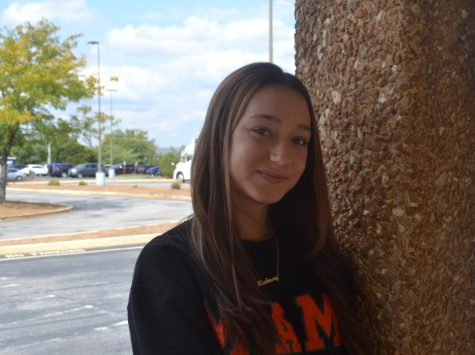With colleges closed all around the country due to the current COVID-19 pandemic, college-seeking students have had to explore their future school options via virtual tours.
Juniors Reese Berry, Bri Davis and Nicholas Harms have all attended virtual college tours as an alternative to in person visits. The virtual-tour process varied by school.
“For most of the colleges, the online tour was a recorded video of students walking through the campuses and giving me information about the college,” Berry said. “I liked [that way] because it made me feel like I was actually there touring. For other colleges it was just a map of the school with an online video recording that didn’t seem very personable, which wasn’t my favorite.”
Harms toured Washington University, University of Notre Dame, Northwestern University, Emory University, Case Western Reserve University and Johns Hopkins University.
“[The colleges I toured] had students [guiding the tours] who told stories about their experiences. I was able to click through pictures of their interiors. When they walked between buildings I was also able to see the landscape of the campus with both 360° photos and regular photos,” Harms said.
Davis toured Southern Illinois University of Carbondale.
“[The tour] was on a Zoom call and they had multiple people from the school who were explaining the rooms, the pricing, the usual stuff. I had to sign up for it beforehand to be able to get on,” Davis said.
Berry virtually toured several colleges like the University of St. Thomas, University of Redlands and Carthage College, among others. Live question asking and answering was offered when Berry virtually toured Milligan College.
“They gave me a video to watch, then afterward I was sent to a Zoom meeting room with faculty and current students where I was able to ask questions and get them answered,” Berry said.
Other colleges had different methods for answering questions.
“There were no live questions, but in the application process there was a box to write down whatever questions you had. Then in the Zoom call, they had specific people answer those questions depending on what department they were in,” Davis said.
Harms has toured several colleges in real life before and felt a major downside of virtual touring was the lack of personability and focus on individual interests. “Since I want to major in computer science, I would have liked to see more about the facilities and teachers involved with that major rather than a short overview of all majors,” Harms said.
Davis believes this process would be harder for people whose major is undecided.
“They wouldn’t be able to get the answers they need to see how everything works and if the school is a good fit for them,” Davis said. “[Some colleges] didn’t even show the campus. Not even pictures. They just talked about it for a brief moment then moved on to the next subject.”
Berry’s process differs as she considers what each college has to offer for her as a future college athlete.
“For me I find schools that have the major I’m looking for and then I make sure they have a swimming program. After that, I look around the website a bit. If I like it I’ll fill out a recruiting form and usually the coach will respond to it within a few days and we set up a phone call,” Berry said. “With corona, I’ve had more time to talk to coaches which is really great because, for me, being able to hit it off with the coach and really like them helps me get a better feel for the school. Multiple coaches have given me information about some of their current swimmers, who’ve given me a lot more inside information about the school.”
Berry’s top five schools plan on reopening in the fall. She is excited to go on a real life tour with students and team members.
“I’ve begun to accept the fact that my college decision process is going to look a lot different than what I have imagined, but that might not be a bad thing,” Berry said. “I think this whole situation has pushed colleges to reach out to students more and focus on personal relationships with prospective students rather than looking at us like we’re just another statistic.”
Davis is also understanding of the fact that colleges are doing their best to adapt to challenges of these unprecedented times.
“It’s not easy especially for those like me who are searching for colleges but have to find alternative ways. One college, The Savannah College of Art and Design, today even called my mom asking about me so they are doing what they can to make the process less painful. They’re helping you by calling, having the virtual tours, emails, and I think they’re doing a really good job of it,” Davis said.



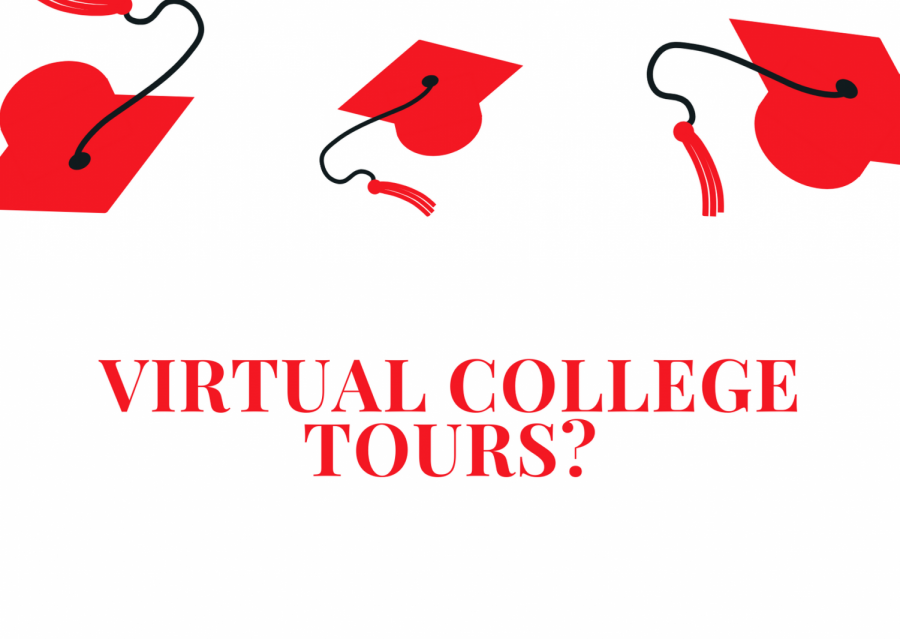

![Smiling in a sea of Longhorns, Fox 2 reporter Ty Hawkins joins junior Darren Young during the morning Oct. 3 pep rally. The last time West was featured in this segment was 2011. “[I hope people see this and think] if you come to [Parkway] West, you will have the time of your life because there are so many fun activities to do that make it feel like you belong here. I was surprised so many people attended, but it was a lot of fun,” Young said.](https://pwestpathfinder.com/wp-content/uploads/2025/10/Edited2-1200x798.jpg)
![West High seniors and families listen as a representative of The Scholarship Foundation of St. Louis, Teresa Steinkamp, leads a Free Application for Federal Student Aid (FAFSA) workshop. This session, held in the library, provided guidance on financial aid, scholarships and student loan options. “This event is very beneficial for any seniors who are applying to or considering applying to colleges after high school [because] the cost of college is on the rise for seniors and parents,” college and career counselor Chris Lorenz said.](https://pwestpathfinder.com/wp-content/uploads/2025/09/DSC_4478-1200x778.jpg)
![Senior Kamori Berry walks across the field during halftime at the Homecoming football game on Sept. 12. During the pep assembly earlier that day, she was pronounced Homecoming Queen. “I thought it was nice that the crowd [started] cheering right away. I know [my friends] were really excited for me, and my family was happy because typically non-white people don't win,” Berry said.](https://pwestpathfinder.com/wp-content/uploads/2025/09/DSC7046-Enhanced-NR-1200x798.jpg)



![Pitching the ball on Apr. 14, senior Henry Wild and his team play against Belleville East. Wild was named scholar athlete of the year by St. Louis Post-Dispatch after maintaining a high cumulative GPA and staying involved with athletics for all of high school. “It’s an amazing honor. I feel very blessed to have the opportunity to represent my school [and] what [it] stands for,” Wild said.](https://pwestpathfinder.com/wp-content/uploads/2025/05/unnamed-6-1200x714.jpg)
![The Glory of Missouri award recipients stand with their certificates after finding out which virtue they were chosen to represent. When discovering their virtues, some recipients were met with contented confirmation, while others, complete surprise. “I was not at all surprised to get Truth. I discussed that with some of the other people who were getting the awards as well, and that came up as something I might get. Being in journalism, [Fellowship of Christian Athletes and] Speech and Debate, there's a culture of really caring about truth as a principle that I've tried to contribute to as well. I was very glad; [Truth] was a great one to get,” senior Will Gonsior said.](https://pwestpathfinder.com/wp-content/uploads/2025/04/Group-Glory-of-Missouri.jpg)

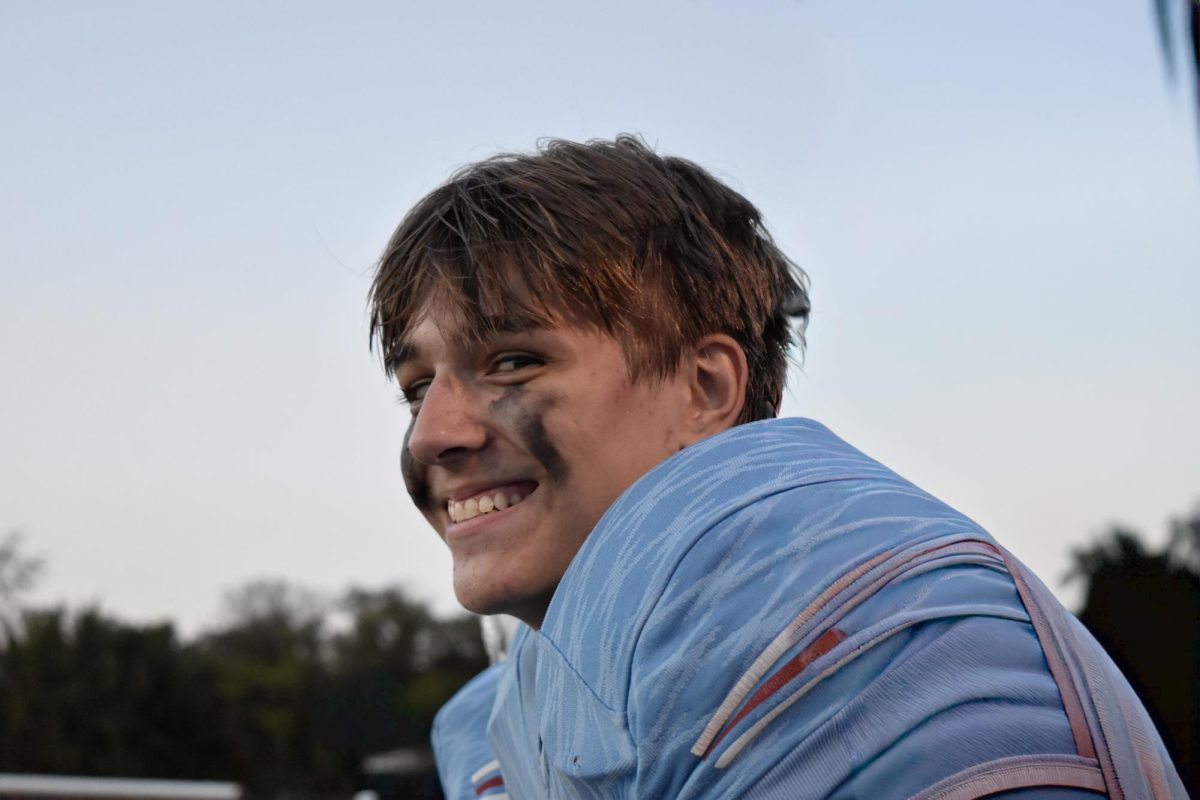
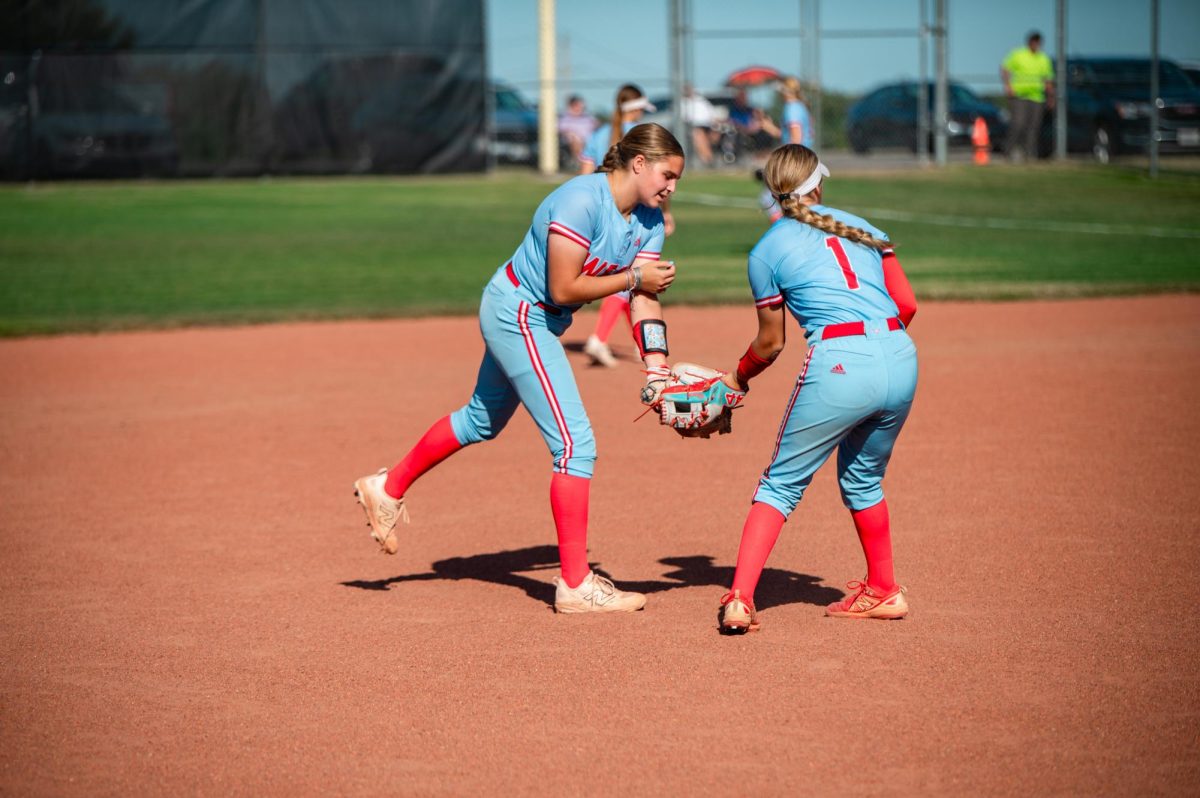

![Blue lights shining brightly, senior Riley Creely beatboxes into the microphone. Creely and the group began the performance in front of the blue lights, sparking interest from the audience. “The pep rally performance was fun. I got to beatbox for the first half of the song, which was hype. I liked to look into the student section [while I performed],” Creely said.](https://pwestpathfinder.com/wp-content/uploads/2025/09/DSC_5085-Enhanced-NR-1200x799.jpg)

![Hugging senior Ella Wheeler, senior Jamaya Love beams after scoring a touchdown at the Powderpuff football game on Sept. 11, putting the seniors on the scoreboard with a score of 6-2 above the juniors. The seniors went on to capture the victory with a final score of 12-2. “I was actually gassed [at this moment]. I was so tired. But, everyone on the sideline, all my teammates and everybody in the stands were cheering,” Love said.](https://pwestpathfinder.com/wp-content/uploads/2025/09/DSC1735-Enhanced-NR-2-1200x799.jpg)
![Raising her hands in the air, freshman Jillian Sternhagen follows Mr. Mooney’s lead during an activity Aug. 15 at freshman orientation. Surrounded by other freshmen, Sternhagen learned an “A O E day” chant to help remember their new weekly high school schedule. Students participated in several activities to get to know each other, the school and the upperclassmen. “We got to tour the school and learn where everything in our schedule is. The energy [at orientation] was fun; the leaders were peppy and got us excited,” Sternhagen said.](https://pwestpathfinder.com/wp-content/uploads/2025/08/DSC_0145-1200x798.jpg)
![Shifting global trade, President Donald Trump’s tariffs are raising concerns about economic stability for the U.S. and other countries alike. “[The tariffs are] going to pose a distinct challenge to the U.S. economy and a challenge to the global economy on the whole because it's going to greatly upset who trades with who and where resources and products are going to come from,” social studies teacher Melvin Trotier said.](https://pwestpathfinder.com/wp-content/uploads/2025/05/MDB_3456-1200x800.jpg)
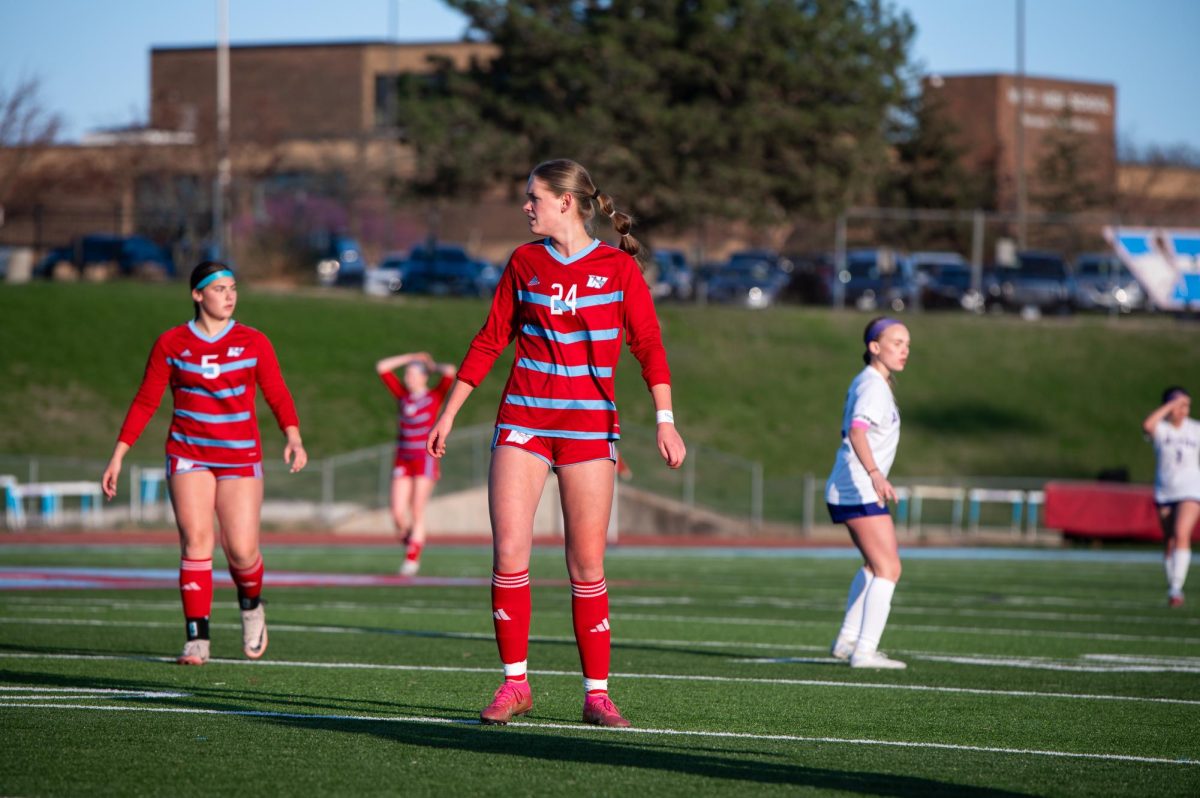
![“I started playing [basketball] because I saw that my brothers were playing, and I found it fun; I started playing at age eight and have continued to play ever since. [Something] I enjoy [is] the back-and-forth competitiveness of basketball that I don't get when I play softball, as well as our team bonding activities because I think it helps with the chemistry throughout our group and in the real world. I also enjoy winning and all of the competitive aspects. [Basketball] has brought great memories and people into my life, and I enjoy spending most of my time with them and cherish the memories my team has created. Getting to go out and play with my very best friends every day is just the best gift a girl can get. A big thing that motivates me is how much time and effort my coaches put in. I just want to work hard because they work hard, while also making my parents proud at the same time. Sometimes, it’s not an easy task being able to balance school and athletics, but with the right mindset and focusing on the goals that I have set for myself, it’s achievable. In high-pressure situations, I just go back to playing my own game [and the basics within the game] rather than focusing on everything around me because I trust my training and my practice. [My advice for upcoming players] is to keep going and continue to practice. Nobody is perfect, there is always going to be something to improve or get better at. There is always going to be someone out there who is doing better than you, and if you want to be the best, you have to keep going and push yourself to be better, but most importantly just have fun in what you’re doing.” - Siena Snyder, 12](https://pwestpathfinder.com/wp-content/uploads/2025/03/DSC0571-Enhanced-NR-Ella-McNeal-1-1-1200x798.jpg)
